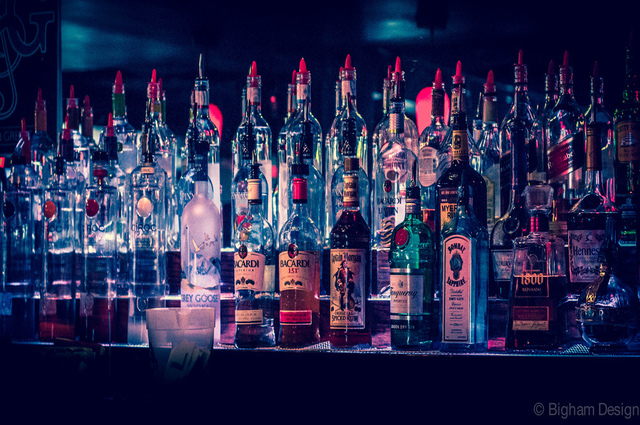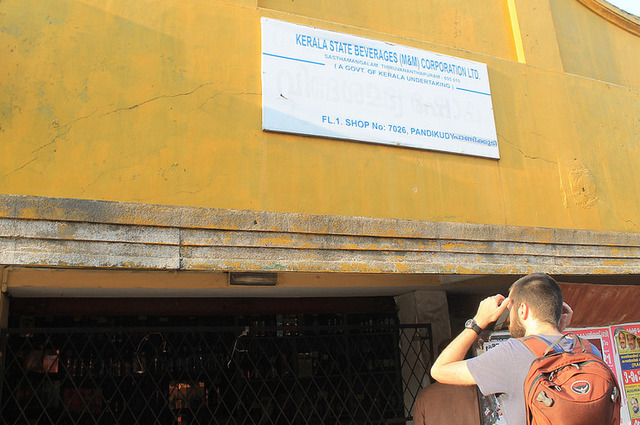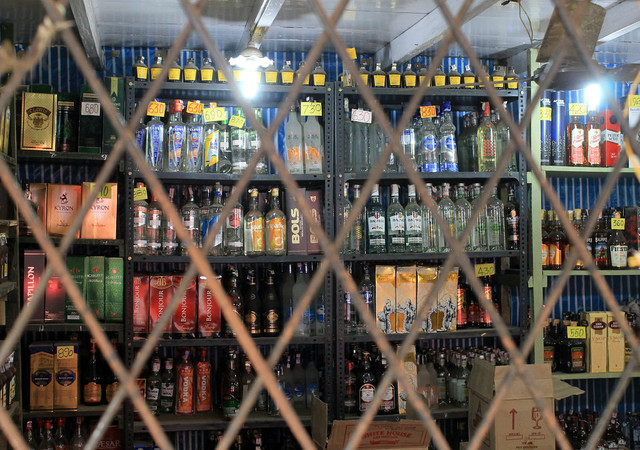22/08/2016
God said, ‘go and multiply.’ He knew his test models were too lazy to work for it. So he found a way: he banned the fundamental process for multiplication, saying that indulging in it was a sin. Today, the world population stands at 7.4 billion. Banning has its own effects.
Evocation of the origin myth has certain relevance in today’s Kerala where liquor consumption has become one of the highly debated questions. Be it films or liquor, human tendency is to consume the banned stuff by hook or crook. The present state government, having seen the shamefully long serpentine queues before the limited liquor stores in Kerala, seems to have thought of giving the resident drunkards a bit more dignity that they deserve. However, the very idea of establishing an online liquor business and setting up of premium stores all over Kerala hasn’t gone down well with the state’s political system, and the government has almost taken a U-turn on the issue at least for the time being in order to avert a negative impact during the impending Onam days.
Liquor consumption has always been a touchy issue in Kerala politics. Pushing the reformatory edge of liquor control into the zone of competitive vote bank politics, both the United Democratic Front and the Left Democratic Front alternatively have created a Frankenstein that’s difficult to contain. The former UDF government in April 2014 decided to do away with 418 bar licences along with the closure of 1,042 non-five star bars and restaurants, and brought retail liquor sales completely under the state-run Consumerfed outlets. Though studies have shown that since then there has been a fall of about 25% in liquor consumption in Kerala, a ban or extreme control is never the way to make substantial changes in the general quality of a society. Whichever state, including Kerala in yesteryears, that has gone for total prohibition in turn faced large-scale hooch tragedies. The latest one was reported from Bihar which recently had declared it a dry state. Another dry state, Gujarat from where our own Prime Minister hails, has been a fertile ground for contraband liquor cartels, and it’s alleged that some police officials themselves are involved in large-scale liquor distribution in the state. If things continue like this, Kerala would also see the flourish of bootlegging and potential hooch tragedies. It is already quite shocking that 74% of youngsters in the state use tobacco products despite stringent measures against it. And drug abuse in cities such as Kochi is rising.
Films are mirrors held against a society. Almost all the Malayalam films have at least one scene that shows liquor consumption in such glorious and celebratory terms. In many a Malayalam film, we feel that the mandatory warning against alcohol consumption can be permanently added on the screen, like a hologram in a currency note, because the characters are constantly drinking! Exaggerations apart, in no other films, liquor consumption is shown with such flair as we do in Malayalam films. Whether these are artificially controlled narratives for positive social impact or the mere reflection of a society, when such scenes constantly appear in films we are forced to see it as a social marker. Malayalam films have such social markers in abundance. One of the highly acclaimed movies of our recent times, ‘Ozhivu Divasathe Kali’ (An Off-Day Game) by Sanal Kumar Sasidharan captures the typical Malayalee way of drinking on a holiday. While the film deals with the social disparities and the casteism ingrained in our genes, in the subtext of the movie, liquor becomes a great leveller or a great integrator.
When did the Malayalee become a drunkard? Drinking was a class-thing for a long time. Only the working class who mostly belonged to the lower and backward castes indulged in drinking after a hard day’s labour. While the limited middle-class societies in the protected economy of India imbibed the erstwhile colonial manners and mannerisms, they somehow failed to pick up the sophisticated drinking habits. Hence drinking remained in the realm of the poor and working class who desperately wanted to forget the day’s toil by relaxing with alcohol. Meanwhile, higher castes indulged in toddy and liquor discreetly. The middle-class was learning ‘saving money through thrift,’ living piously and parsimoniously, doing a lot of things in the way of self help, in today’s parlance ‘DIY’ (do it yourself). They never had the time or intention to drink and break the fundamental values of their class. But today, ironically, it is the middle-class that indulges in large-scale liquor consumption. Though rising disposable income, ample amount of free time, and the Malayalees’ perennial adherence to laziness could be cited as the reasons for the excess liquor consumption, the shift in class and age also should be taken in for serious studies.
A mere analysis of the social markers suggests that this excessive drinking is a post-1980s phenomenon. ‘Bringing the bottle’ and ‘Opening/Breaking the bottle’ became a common parlance among the friends of the Gulf returnees. Among the emerging middle-class, only the Gulf returnee had the spending power, leisure time and a group of loyal friends to open a bottle. This was an occasional affair, but the frequencies increased as more people started going overseas for better paid jobs. With new economy, the erstwhile image of a drunkard (who is either a pauper disrespected by the society or a poet or an artist) underwent a thorough overhaul. The emergent middle-class assumed the ‘liberal’ feelings both the poor and the creative enjoyed once. With the shifting of the consumer base of liquor products, it became necessary to attribute extraneous social and cultural values to drinking and also to create infrastructure for such a socio-cultural shift in drinking. That explains the proliferation of bars and bar restaurants.
However, the Malayalee still remains a hypocrite. He laughs at the sloshed out characters presented by comedians Ayyappa Baiju and Suraj Venjaramoodu. But they embrace the dignity of drinking by absorbing the one-liner of Mohanlal: ‘Vaikettentha Paripadi?’ (What are you doing this evening?). The implication is this: aren’t you drinking with your friends?
However, nursing a drink in the company of the beloved or invited guests isn’t the image of a Malayalee. His image is that of a boisterous person who drinks with his peer group in bars, friends’ pads, guest houses, hotel rooms, lodges, behind the culverts, sea shores, hills, forests, river beds, tourist spots, pilgrim centres, abandoned houses, empty plots, narrow and dark alleys. In none of these places a home ever features. A Malayalee drinker is a split personality. The occasion could be his marriage anniversary, a birthday, friends’ arrival from abroad, first salary, new bike, new car, first break-up and so on. The typical Malayalee wants to drink but never at his home. Even if he does, he does it surreptitiously on the terrace or in the bathroom, saying it isn’t right for his children or women to see him drinking. Such hypocrisy!
A thorough cultural shift is needed for Malayalees to change their drinking habit. It would be painstaking and slow. Only the government could help by making drinking a ‘normal’ social phenomenon. As the LDF government decided hesitantly (and backtracked for the time being), if it could create premium stores all over Kerala and treat the tax-paying liquor consumers as dignified as the consumers of any other product, then things will begin to change. Also it will change when a Malayalee decides to have his daily or weekly dose of liquor in moderate measures at home in the company of his wife. When the society opens up in this way, the need for ‘going out’ to have a binge as if there was no tomorrow would slowly cease. If we could remove the social stigma attached to liquor consumption, I would say at least 20% of excessive drinking will immediately stop. The countries that have made marijuana legal (like the Netherlands, Spain and Germany and many other Latin American nations) have noticed a fall in illegal activities pertaining to drugs, social skirmishes by drug cartels, domestic discords and so on.
Online liquor business isn’t a sin. It is a shift in the interface, which would eventually become a shift in the attitude because an online delivery cannot be done behind a culvert or in an empty plot. It has to have an address: a home.
(Photo credit: ironypoisoning via Foter.com / CC BY-SA ironypoisoning via Foter.com / CC BY-SA bighamdesign via Foter.com / CC BY-SA)



